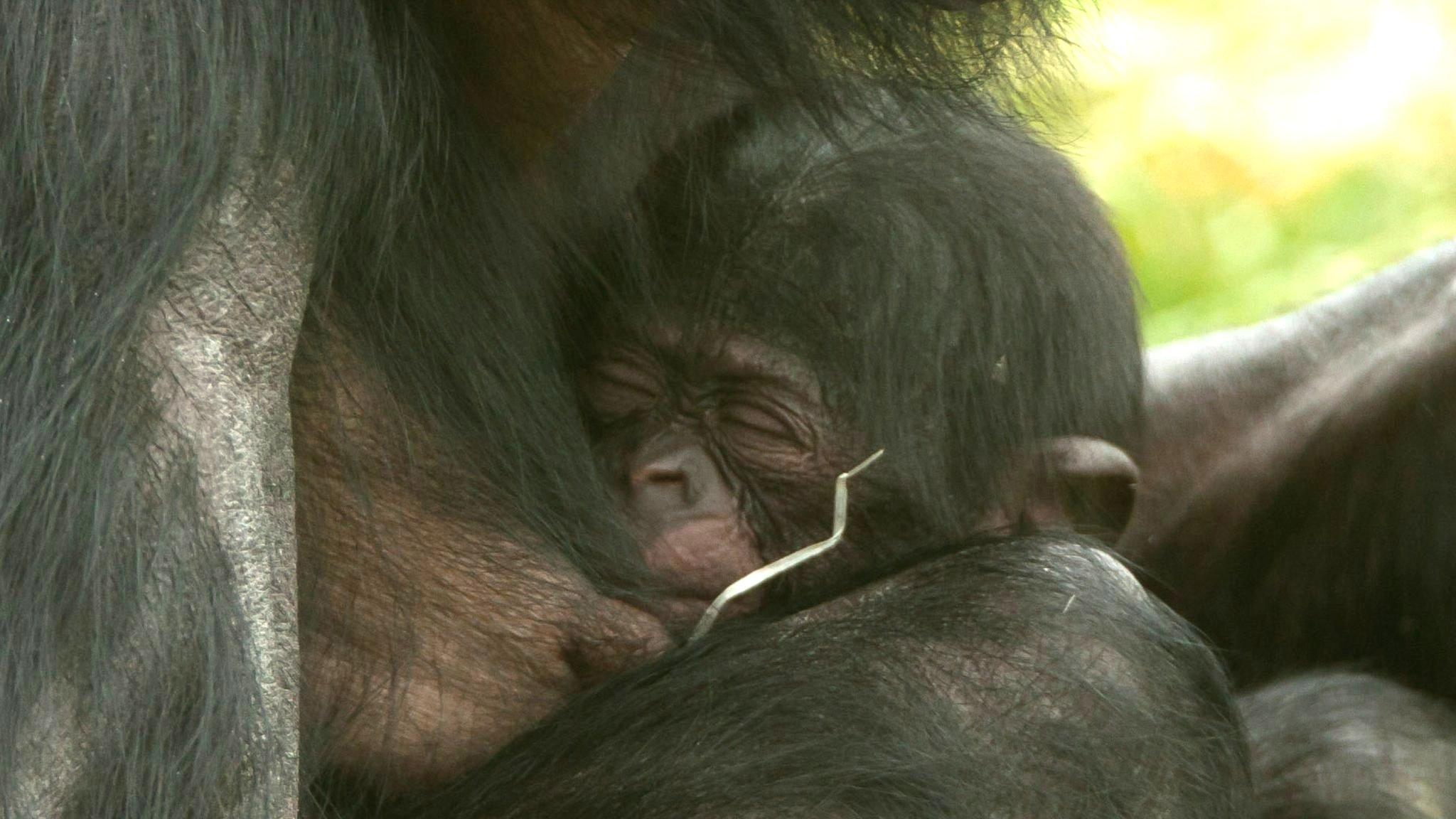Twycross Zoo begins great ape heart disease study
- Published
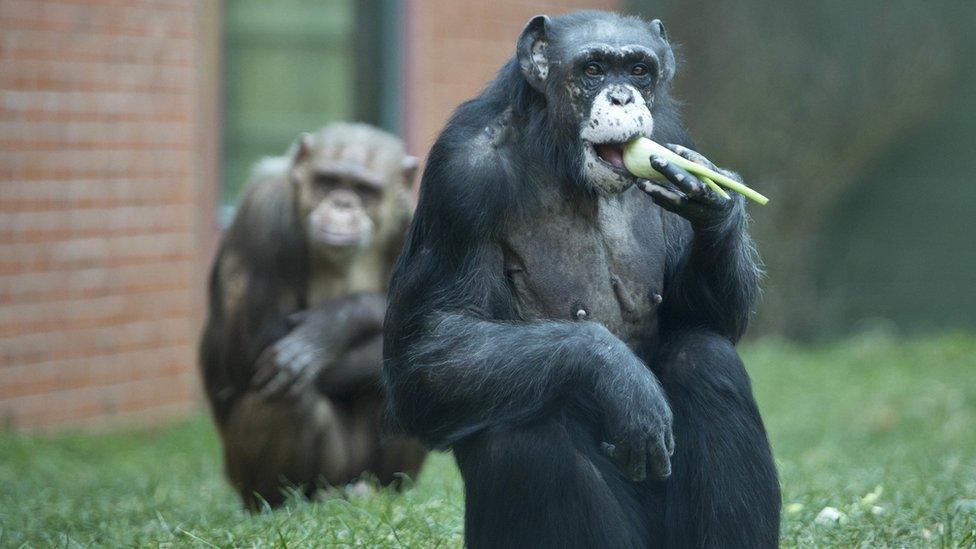
Researchers do not know why great apes, such as chimpanzees, develop heart disease when they are in human care
Researchers are to look into why great apes are susceptible to heart disease while in the care of humans.
A study of primates at European zoos found the condition was a "major cause" in the death of primates like gorillas and chimps.
Unlike humans, experts do not believe the disease in great apes is linked to poor diet and lifestyle.
It is also hoped the Twycross Zoo project will uncover the specific type of heart disease affecting the animals.
The Ape Heart Project is being carried out in conjunction with experts at the University of Nottingham.
Their work comes after a mortality review of European zoos, between 2003-14, uncovered how the apes had suffered from the condition.
Dr Victoria Strong, from the university's School of Veterinary Medicine and Sciences, said: "At the moment we're unsure why great apes in human care develop heart disease.
"We have also yet to find out whether their wild counterparts are affected to the same degree.
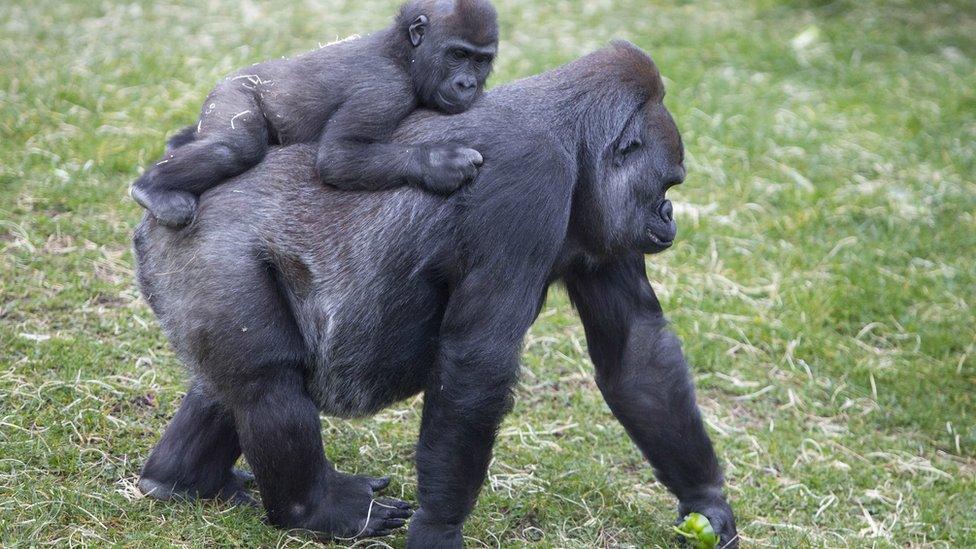
It is hoped the 10 year project will help grow understanding of the 'management and welfare' of primates in human care

Mortality review (number of deaths):
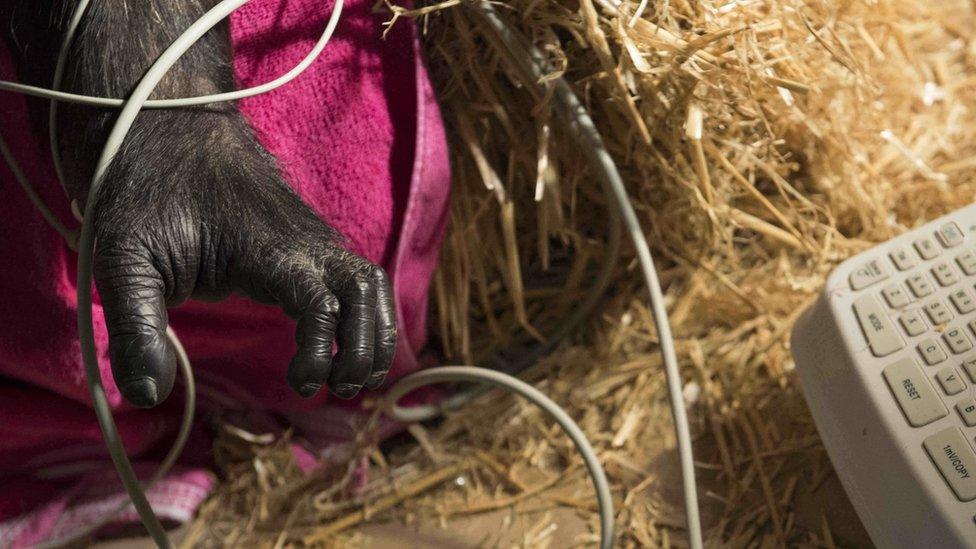
151 gorillas
384 chimps
120 orang-utans
47 bonobos

Dr. Strong does not believe the great apes' heart disease is linked to poor diet, like it can be in humans.
"In humans, we most commonly see the build-up of fatty deposits that causes atherosclerosis, which is caused by eating badly and exercising rarely," she said.
"But, so far this is not what we are seeing in apes."

Staff at Twycross Zoo regularly measure the heart rate of their animals
The project has also produced some initial guidelines aimed at improving the health of apes at European zoos.
It has suggested all primates, which go in for surgery under anaesthetic, have their blood pressure assessed and a heart ultrasound carried out.
It is hoped it will enable zoos to identify animals with heart disease problems before it is too late for treatment.
- Published9 March 2016
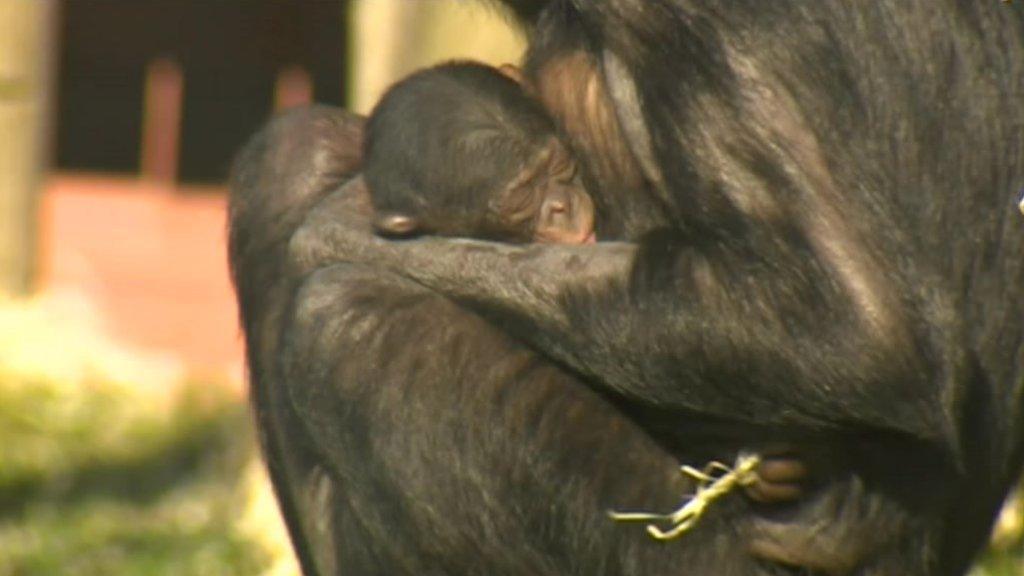
- Published9 March 2016
